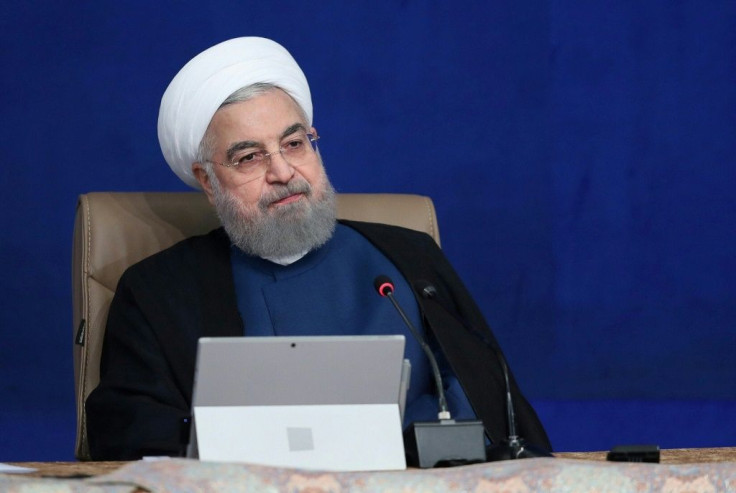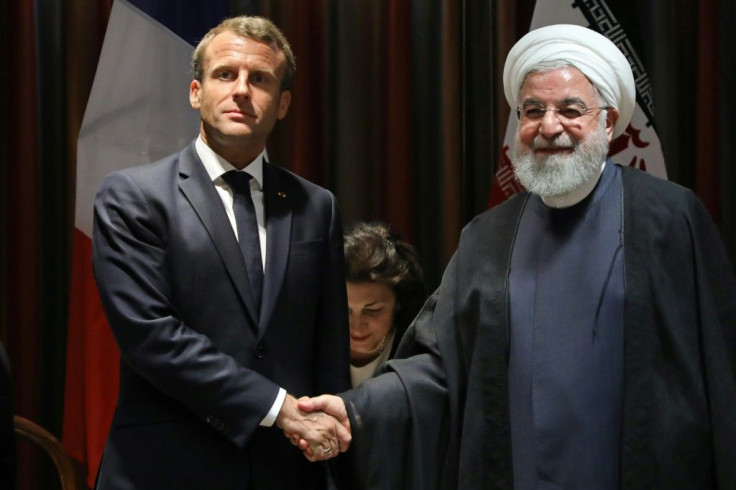Rouhani Says Next US Leader Must Cede To Iran Demands
Iranian President Hassan Rouhani vowed Tuesday that the next US leader must accept Tehran's demands, ruling out compromise as Donald Trump vies for reelection.
"We are not a bargaining chip in US elections and domestic policy," Rouhani said in a virtual address to the UN General Assembly.
"Any US administration after the upcoming elections will have no choice but to surrender to the resilience of the Iranian nation."
Tensions have soared between Iran and the United States under Trump, who pulled out of a nuclear accord negotiated by his predecessor Barack Obama and slapped sweeping sanctions on the country.
Joe Biden, Trump's rival in November 3 elections, staunchly backed the 2015 nuclear deal.

Iran's Foreign Minister Mohammad Javad Zarif on Monday also ruled out any renegotiation of the 2015 accord, which he had brokered over exhaustive talks with his then counterpart John Kerry.
"The United States can impose neither negotiations nor war on us. Life is hard under sanctions. However, harder is life without independence," Rouhani said.
"And for the world: Today is the time to say 'no' to bullying and arrogance.
"The era of dominance and hegemony is long over. Our nations and children deserve a better and safer world based on the rule of law."

Trump ramped up efforts Monday by saying he was imposing "UN" sanctions over Iranian violations of an arms embargo -- defying virtually the entire Security Council which says he has no such authority.
The Trump administration argues that the United States remains a "participant" in the 2015 deal as it was listed as such in a resolution that blessed Obama's diplomatic efforts -- meaning Washington can still "snap back" sanctions for violations.
French President Emmanuel Macron, who last year tried unsuccessfully to introduce Trump and Rouhani, was unambiguous in his opposition to Trump's assertion.
"We will not compromise on the activation of a mechanism that the United States is not in a position to activate on its own after leaving the agreement," Macron said in his recorded speech.
"This would undermine the unity of the Security Council and the integrity of its decisions, and it would run the risk of further aggravating tensions in the region," he warned.
Trump made clear in his own address that the United States was out of the nuclear deal.
"We withdrew from the terrible Iran Nuclear Deal and imposed crippling sanctions on the world's leading state sponsor of terror," Trump said.
UN inspectors say Iran was in compliance with the restrictions on its nuclear program under the accord, but the Trump administration says its priority is to counter Iran throughout the region and boost its rivals Israel and Saudi Arabia.
France and other European powers say they support extending the arms embargo on Iran, which is set to expire next month, but that the priority is to preserve a peaceful solution on the nuclear issue.
© Copyright AFP {{Year}}. All rights reserved.





















